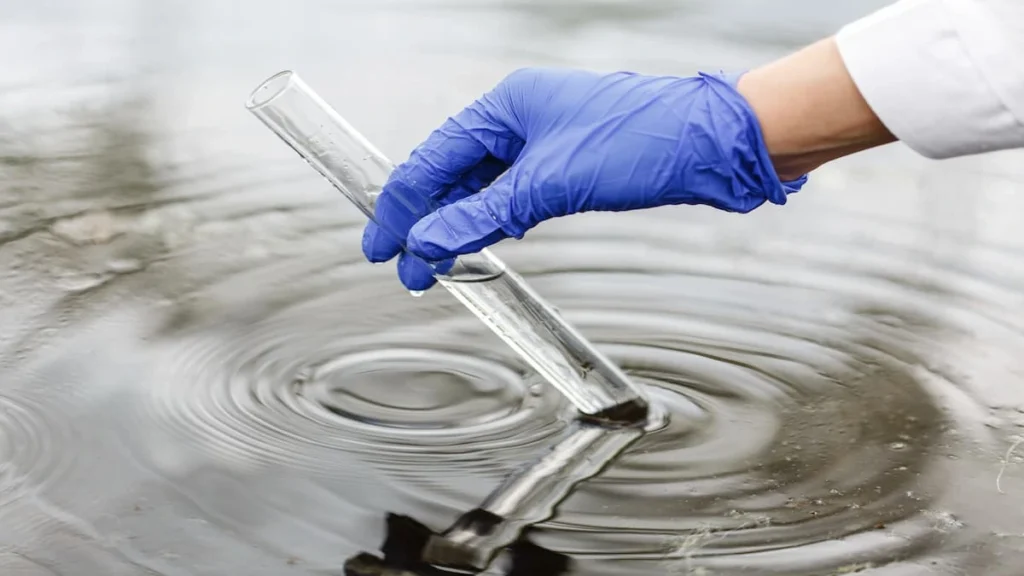Discover how natural processes are transforming wastewater into clean, reusable water.
Across the world, industries and communities are seeking reliable and sustainable methods to manage wastewater. Traditional chemical-heavy treatments often leave behind byproducts that harm the environment. That’s where the bioremediation of waste water comes in. By using natural microorganisms to break down pollutants, this process offers a practical and eco friendly sewage treatment alternative that supports both human needs and environmental health.
What Is Bioremediation?
Before we dive into water applications, it helps to answer the common question: what is bioremediation? In simple terms, bioremediation is the use of microorganisms like bacteria and fungi to degrade or neutralize contaminants in soil, water, and air. These microbes feed on pollutants, transforming harmful substances into harmless byproducts such as carbon dioxide, water, and biomass.
When applied to water systems, the bioremediation of waste water provides a natural, sustainable, and cost-effective solution compared to purely mechanical or chemical processes.
Types of Bioremediation
There are several types of bioremediation, but in wastewater treatment, two main approaches dominate:
Aerobic bioremediation:
In this method, microbes that thrive in oxygen-rich environments break down organic waste. It’s particularly effective in reducing biological oxygen demand and minimizing odors.
Anaerobic digestion wastewater treatment:
This process relies on microbes that work without oxygen. While slower than aerobic methods, it’s powerful for breaking down complex waste and generating biogas, which can be harnessed as renewable energy.
Both approaches are widely used in biological wastewater treatment plants, either separately or in combination, depending on the type and volume of wastewater being treated.
Biological Treatment of Wastewater: How It Works
The biological treatment of wastewater focuses on harnessing the natural feeding habits of microorganisms. Wastewater is introduced into controlled environments where conditions such as oxygen levels, temperature, and nutrient supply are optimized for microbial activity.
In an aerobic setup, wastewater passes through tanks filled with oxygen, where bacteria quickly consume organic matter. On the other hand, anaerobic digestion wastewater treatment systems use sealed reactors to encourage microbes to slowly break down waste while producing biogas.
These processes form the backbone of modern biological wastewater treatment plants, which are designed to efficiently clean water at industrial, municipal, and residential scales.
Benefits of Bioremediation in Wastewater Treatment
Choosing the bioremediation of waste water over traditional methods comes with multiple advantages:
Eco-friendly: It reduces reliance on harsh chemicals, supporting safer discharge and reuse.
Cost-effective: Microbes do most of the work, lowering energy consumption and operational expenses.
Versatile: Effective for various industries including food processing, textiles, chemicals, and pharmaceuticals.
Sustainable: Supports long-term water management by recycling and reusing treated water.
These benefits of bioremediation make it a preferred choice for organizations that value both efficiency and environmental responsibility.
Natural Water Treatment in Practice
Modern wastewater management is shifting toward natural water treatment techniques, as they strike a balance between efficiency and sustainability. Instead of heavily dosing water with chemicals, eco friendly sewage treatment plants integrate biological processes that align with nature’s own cleaning methods.
This approach is not only better for ecosystems but also supports corporate responsibility goals, as industries can showcase their efforts toward greener operations.
Where Bioremediation Fits in Sewage Treatment
In everyday terms, sewage treatment involves removing harmful substances so that water can be safely reused or returned to its natural state. Bioremediation strengthens this process by handling organic matter more effectively than chemicals alone.
Large-scale wastewater treatment facilities often integrate biological treatment of wastewater in their operations because it provides consistent results, reduces sludge, and meets strict environmental standards.
Key Applications Across Industries
The adaptability of bioremediation makes it a versatile approach across multiple sectors. A few notable applications include:
- Municipal sewage systems that require reliable, low-maintenance solutions.
- Industrial plants where anaerobic digestion wastewater treatment can offset energy costs by generating biogas.
- Commercial complexes seeking sustainable eco friendly sewage treatment solutions that comply with regulatory norms.
Such widespread use reflects the growing trust in biological wastewater treatment plants as a key component of safe and sustainable water management.
Why Choose Biological Wastewater Treatment Plants
Organizations are increasingly turning to biological wastewater treatment plants for their proven efficiency and environmentally responsible approach. Unlike older systems that relied heavily on chemicals, these plants utilize both aerobic bioremediation and anaerobic methods to provide a comprehensive solution.
A Smarter, Cleaner Future for Wastewater
The bioremediation of waste water is more than just a trend it’s a long-term solution for protecting our planet’s most valuable resource. By relying on natural microorganisms, this process minimizes environmental damage, lowers operational costs, and ensures water can be safely reused. The combination of aerobic bioremediation, anaerobic digestion wastewater treatment, and other bioremediation methods demonstrates the versatility and impact of this approach for communities and industries alike.
At Amoda Chem, we specialize in advanced biological treatment of wastewater, delivering solutions that are not only effective but also sustainable. With years of expertise in designing and operating biological wastewater treatment plants, we help industries achieve compile while reducing their environmental footprint.
If you’re looking for an eco friendly sewage treatment partner that understands your needs and provides cutting-edge natural water treatment systems, Amoda Chem is here to help. Explore our wastewater treatment solutions to discover how we can work together to create a cleaner, greener future.

